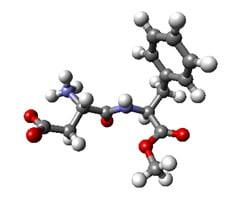Aspartame is a non-nutritive sweetener
Used in many foods and beverages. It is about 200 times sweeter than sugar, and it has no calories. Aspartame was approved for use in the United States in 1974, and it has been extensively studied since then.
The safety of this sweetener has been the subject of much debate. Some people believe that it is a dangerous chemical that can cause a variety of health problems, including cancer, brain damage, and seizures. Others believe that it is safe and that the risks have been exaggerated.
The scientific evidence on the safety of It is mixed. Some studies have found that it may be linked to certain health problems, while others have found no link. The International Agency for Research on Cancer (IARC) has classified aspartame as “possibly carcinogenic to humans” (Group 2B), but the U.S. Food and Drug Administration (FDA) has concluded that it is safe for use in food.
The FDA has set an acceptable daily intake (ADI) for aspartame of 40 milligrams per kilogram of body weight. This means that a 150-pound person could safely consume up to 2,400 milligrams of aspartame per day.
If you are concerned about the safety of it, you may want to avoid it. However, there is no need to avoid it if you are healthy and consume it within the recommended limits.(If your local government bans it, then you must follow their advice, also you may check with your physician before consuming it)
Here is a summary of the pros and cons of aspartame:
Pros:
- Is a very sweet substance, so it can be used to reduce the amount of sugar in foods and beverages.
- Has no calories, so it can be used by people who are trying to lose weight or control their calorie intake.
- Has been extensively studied, and the FDA has concluded that it is safe for use in food.
Cons:
- Some people believe that aspartame may be linked to certain health problems, such as cancer, brain damage, and seizures.
- Aspartame is metabolized into phenylalanine, which can be harmful to people with phenylketonuria (PKU).
- Aspartame has a bitter aftertaste that some people find unpleasant.
Ultimately, the decision of whether or not to consume is a personal one. There is no right or wrong answer, and you should weigh the risks and benefits before making a decision.

